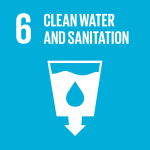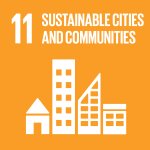
Enebouj, RMI – The Republic of the Marshall Islands (RMI) is taking a momentous step towards enhancing water security and ensuring access to clean and sustainable drinking water for its communities.
On 27 September a groundbreaking ceremony took place to mark the beginning of the UNDP-supported Green Climate Fund-financed RMI Water Security Project, which aims to install Rainwater Harvesting Systems in 115 communities spread across the 24 atolls and islands – an ambitious initiative to address water scarcity challenges.
The ceremony brought together high-level government officials led by Hon. Kitlang Kabua, Acting President, local traditional leaders, community members, and United Nations Development Programme (UNDP) representatives.
The RMI Water Security Project, known as ACWA (Addressing Climate Vulnerability in the Water Sector in the Marshall Islands) is a UNDP-led initiative in collaboration with the RMI Government aimed at improving access to clean and sustainable drinking water across the nation with the goal of ensuring every citizen of RMI has access to safe and reliable drinking water.
Rainwater harvesting, a traditional and environmentally friendly practice in the Marshall Islands, is being modernized and expanded to meet the growing demands of the population; the installation of Rainwater Harvesting Systems in 115 communities (spread across 24 atolls and islands) is therefore a vital component of this project which reflects the RMI's commitment to achieving the United Nations Sustainable Development Goal 6: Clean Water and Sanitation, and addresses water scarcity challenges in a climate-resilient manner.
Key highlights of the RMI Water Security Project include:
- Community empowerment: Local residents will actively participate in the installation and maintenance of rainwater harvesting systems, fostering a sense of ownership and sustainability.
- Scalability: The 115 communities selected for this project represent a broad cross-section of RMI's diverse geographic landscape, ensuring that water security reaches every corner of the nation.
- Climate resilience: As a low-lying island nation vulnerable to climate change, the RMI Water Security Project is designed with climate resilience measures, including robust water storage solutions and disaster preparedness plans.
- Education and capacity-building: Alongside infrastructure development mostly in the water sector, educational programs shall be implemented to promote responsible water use and conservation, as well as empowering communities to manage their water resources effectively and efficiently.
The ACWA Project is a testament to the RMI Government's unwavering commitment to safeguarding its citizens' fundamental right to clean and reliable drinking water. This endeavour, undertaken in partnership with UNDP and local stakeholders, reflects the collective effort to secure a sustainable water supply for the entire nation.
“Friday’s groundbreaking ceremony represents a significant leap towards a more water-secure future for our nation. By installing Rainwater Harvesting Systems in 115 communities, we are not only addressing immediate water scarcity issues but also building resilience against climate change impacts," said Acting President, Hon. Kitlang Kabua
UNDP Pacific Resident Representative Ms. Tuya Altangerel said, "This project not only focuses on securing a sustainable water supply but also places a strong emphasis on building resilience in the face of climate change, and our efforts here today are aligned with the urgent need to adapt and mitigate the effects of a changing climate.”
She concluded by adding, “As we break ground today, let us also break barriers and create a brighter, more sustainable future for the people of the Marshall Islands. Let us continue to work hand in hand, to innovate, and to inspire positive change as together, we can ensure that access to clean water is not just a dream but a reality for all.”
The RMI Water Security Project is expected to be completed by 2027, with phased installation ensuring minimal disruption to communities during construction.
The ACWA project has been made possible through funding from the Green Climate Fund, the Government of the RMI, and more recently the Australian Government.
Koji Kumamaru – ACWA Project Manager | koji.kumamaru@undp.org



